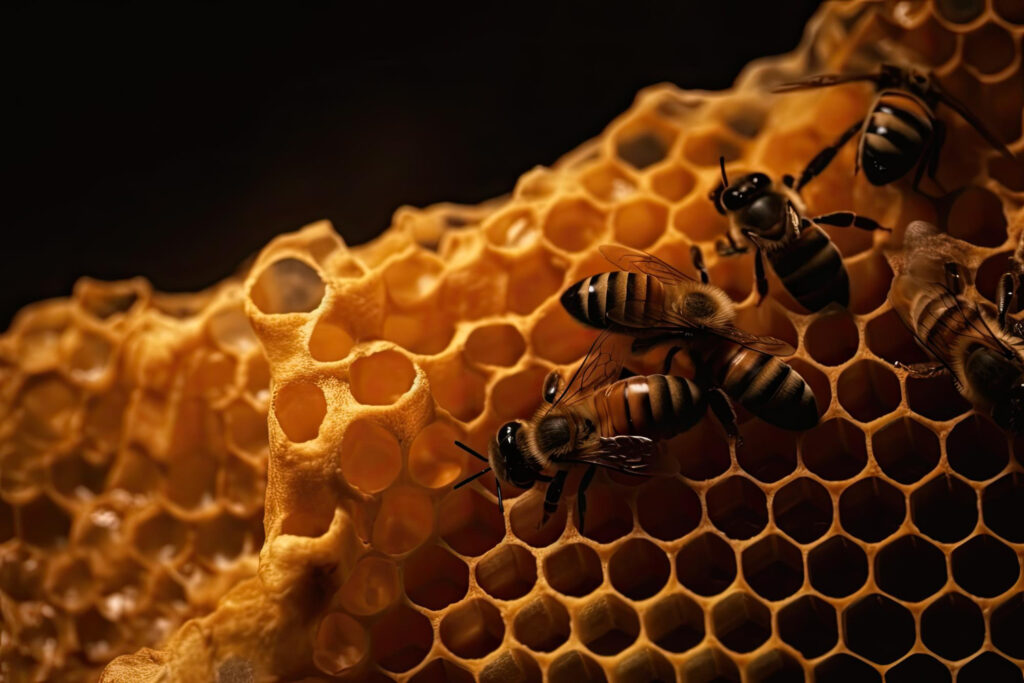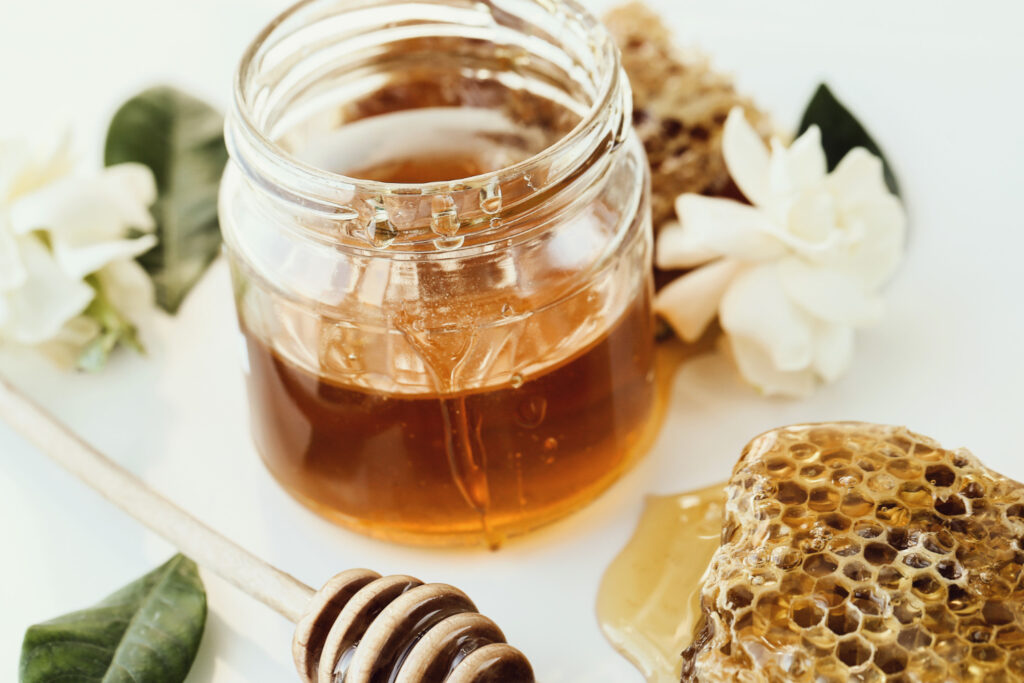
Honey is an all-natural, readily available sweetener with numerous health benefits. Research suggests honey may help reduce the risk of heart disease and diabetes, support a healthy gut, and even serve as an alternative to antibiotics
How Honey is Made
Honey is produced from nectar, a sweet liquid that flowers produce to attract bees. Bees collect nectar from flowers and store it in their stomachs. They then pass the nectar to other bees through their mouths, transforming the nectar into honey. The final product is stored in honeycomb cells.
Metabolic Syndrome Management
Honey may be beneficial for individuals with metabolic syndrome (MetS), a cluster of risk factors for heart disease and diabetes. To be diagnosed with MetS, one must have at least three of the following conditions:
- A waistline between 35–40 inches
- High blood pressure
- High blood levels of triglycerides
- Low HDL (“good”) cholesterol
- High blood sugar
Honey may help manage MetS by
- Regulating blood sugar: Honey has a lower glycemic index (GI) than sugar, preventing spikes in blood sugar and insulin levels. It also enhances insulin sensitivity and may prevent weight gain when consumed moderately.
- Improving lipid metabolism: Honey lowers blood levels of triglycerides and LDL (“bad”) cholesterol while raising HDL cholesterol. This balance helps prevent cholesterol buildup in the arteries.
- Reducing oxidative stress: Honey’s antioxidant properties combat oxidative stress, an imbalance between free radicals and the body’s ability to neutralize them.
Heart Disease Prevention
Honey contains over 180 substances, including natural sugars, vitamins, minerals, and phytochemicals. Its antioxidant and anti-inflammatory compounds help protect against atherosclerosis, the buildup of fatty substances in the arteries that can block blood flow and increase the risk of coronary artery disease (CAD). CAD can lead to angina and heart attacks

Antibiotic Alternative
Honey may serve as an inexpensive alternative to antibiotics. A 2020 review found that honey effectively reduces cough frequency and severity compared to over-the-counter medicines and antibiotics. This finding is significant given concerns about antimicrobial resistance, partly due to overprescribing antibiotics for upper respiratory tract infections (URIs). Antimicrobial resistance occurs when viruses, bacteria, or fungi stop responding to treatments, limiting options for treating URIs and other infections.
A 2017 study discovered that an antimicrobial compound from honeybees could become the basis for new antibiotics, potentially curbing antimicrobial resistance.
Gut Health Support
Honey has prebiotic properties, promoting the growth of healthy gut bacteria like Lactobacilli, which aids in digestion and nutrient absorption. Lactobacilli can also help alleviate irritable bowel syndrome (IBS) symptoms, such as diarrhea. Prebiotics are linked to a strong immune system and enhanced mental well-being.
Nutritional Profile of Honey
One tablespoon of honey contains
- Calories: 63.8
- Fat: 0g
- Sodium: 0.8mg
- Carbohydrates: 17.3g
- Fiber: 0.04g
- Added sugars: 0g
- Protein: 0.1g
Honey also contains 31 minerals, including phosphorus, calcium, potassium, and magnesium, although it does not supply a large percentage of these nutrients in the diet. More research is needed to fully understand the benefits of honey’s complex makeup.
Risks and Considerations
When buying honey, it is essential to ensure it hasn’t been cut with other additives. Talking to local beekeepers or reading ingredient labels can help. Dark honey, such as buckwheat honey, generally has stronger antioxidant activity than lighter varieties, except for goldenrod honey.
Note: Never give honey to children under 12 months due to the risk of Clostridium botulinum spores, which can cause serious illness in infants.
Tips for Consuming Honey
There are many ways to enjoy honey
- Sweeten tea, coffee, or smoothies
- Whisk into homemade vinaigrettes and sauces
- Drizzle over oatmeal, pancakes, fresh fruit, chia seeds, or avocado pudding
- Stir into energy balls made with nut or seed butter, oats, dried fruit, spices, and dark chocolate
- Use to make kale chips or glaze carrots, beets, walnuts, or cashews
- Substitute for sugar in some baked goods, using one-half to two-thirds cup of honey for one cup of sugar and reducing the liquid in the recipe
- Sweeten cocktails, such as honey lime margaritas, honey-kissed cosmos, or bee’s knees (honey, gin, ginger, and lemon juice)
Honey is a versatile and beneficial addition to a balanced diet, offering various health benefits and culinary uses
A Quick Review
Honey is a natural sweetener with numerous health benefits, including reducing the risk of heart disease and diabetes, supporting gut health, and serving as an alternative to antibiotics. Its antioxidant and anti-inflammatory properties make it a valuable addition to a balanced diet. However, it is important to source pure honey and avoid giving it to infants under 12 months.











